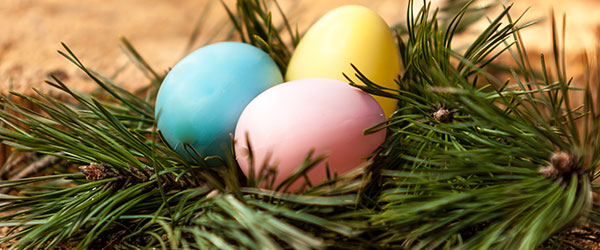Choosing between Christmas and Easter
Clifford M. Yeary
Do you have a favorite holiday? Based on how much I miss the departed members of my family, I would want to return to a Thanksgiving Day of my childhood, if I could. To me, Thanksgiving Day is a true reminder that the English word “holiday” derives from the words “holy day.”
And speaking of holy days, let’s look at the two biggest Christian ones in terms of their religious importance. Which holy day seems most important, Christmas or Easter?
At Christmas we celebrate the incarnation of our Lord. The core reason for celebrating Christmas is that God the Son took on human flesh and was born of the Virgin Mary. Actually, we don’t know for sure what day of what year he was born. We do know, however, that he was born, and since he is, as John 8:12 says, “the light of the world,” the most appropriate time to celebrate his birth is approximately that time of year when we (in the northern hemisphere) most long for light in the midst of the earth’s long, long nights. Perhaps it is equally appropriate that southern hemisphere Christians celebrate the birth of the light of the world when the light of the sun stays longest in their sky. As we say in the Nicene Creed, he is truly “light from light.”
Easter is often presented as the holiest of Christian feasts because it is the feast of the resurrection. The resurrection of Christ is also God’s promise that we, too, will rise from the dead. There is no greater hope for Christians than to be raised to eternal life in Christ.
There is a very strong argument for believing that Easter is our most important holy day. Christ rose from the dead after dying on the cross because of our sinfulness. The reality of sin in our lives is such that it would, if left unforgiven, prevent us from ever entering an eternal, life-giving relationship with our Creator. But when the evil that afflicts the entire human race sent Jesus Christ to the cross, it only resulted in God’s determination to make his death and subsequent resurrection the source of our forgiveness and the source of our salvation. Jesus’ resurrection from the dead is the heart of the good news of our salvation.
Easter was the first “holy day” to become a fixture of annual Christian celebration. There is solid evidence that Easter was celebrated regularly by the middle of the second century. In fact, almost all Christians have preserved Sunday as our official day of worship because Christ rose from the dead on a Sunday. Sunday as the day of Christian gathering is attested to in Acts 20:7 and First Corinthians 16:2. Christmas, however, did not become an official church holy day until sometime in the fourth century.
Over the course of the many centuries since Christ’s birth, however, the importance of the incarnation to Christian theology has grown significantly. That God, in Christ, chose to become part of creation is beyond the capacity of human imagination to deal with, but some of our greatest theologians have dealt with it as best they could.
In the late thirteenth century, the Franciscan John Duns (Duns Scotus) became the first to maintain in writing that God would have entered creation as a human being even if no one had ever sinned. The incarnation, he claimed, was part of God’s eternal plan. His belief is not official doctrine, but the church has never disclaimed it either. What our faith does teach us, however, is that the incarnation, once it occurred, is an eternal phenomenon. In Christ, God has become part of creation and that will remain eternally true.
What seems most significant about that in terms of our salvation is that it transforms the meaning of the resurrection of the dead. We don’t just get to live again, our resurrection will be a share in Christ’s own resurrection. When we speak of entering eternal life, that life is God’s own life. As we read in Second Peter 1:4, “He has bestowed on us the precious and very great promises, so that through them you may come to share in the divine nature.”
In terms of their importance to us, it makes no sense to pit Christmas and Easter against each other. They are united together forever in the one Christ, and it is Christ in us that is our hope for glory (Col 1:27).
Clifford M. Yeary is associate director of Little Rock Scripture Study and author of these books published by Liturgical Press: Pilgrim People, Welcome to the Feast: The Story of the Eucharist in Scripture, and the upcoming Hail Mary, Holy Bible. |
 Connections Archive | Forward Email
Connections Archive | Forward Email

